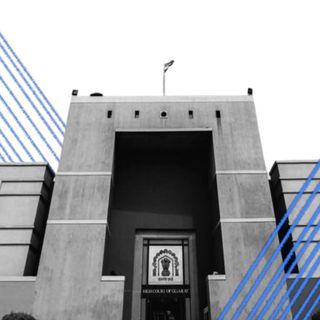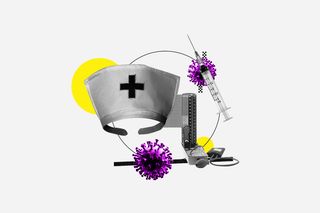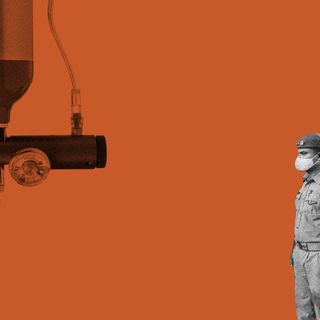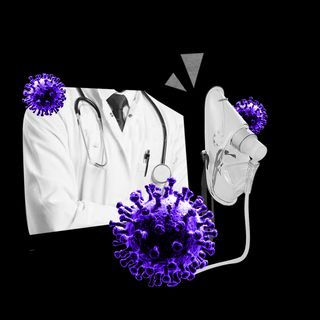
The Second Wave: A Nurse Who Thought Covid19 Would End Soon, “But Nothing Has Changed”
We compiled portraits of frontline healthcare workers’ experiences in India’s current pandemic crisis. In this installment: A 42-year-old nurse working in a Kerala community health center.

Pushpaja K.V., a 42-year-old nurse working in a government-run Kerala community health center, shares what her day looks like on the frontlines of the pandemic. This is the second installment of a series that looks at the toll of a worsening Covid19 crisis from multiple perspectives within the healthcare system.
I’m currently working in a community health center in Kannur’s Sreekandapuram district in Kerala. I have worked here for one year, before that I was working in a private hospital, which was exclusively for Covid19 patients. I worked there during the Covid19 first wave, then the government took over that institution and turned it into a Covid treatment center. Health workers from different government hospitals of Kannur district were deputed for two weeks’ turn initially; I was one of them.
Back then, we were very anxious about the condition, worried about what the virus is and what it meant. Moreover, the cases were still controllable and less at that time. It was quite an experience — my first time with PPE kits. Looking back now, that time passed without any problem, mostly because we used to think all of this will end within a short time. But now, it has been one year, and nothing has changed.
Now, we suspect every patient as Covid-positive and take all precautions while caring for them. Last year in the beginning, there were only a few positive cases within the district — 10 to 20. Now, the number of patients itself has increased up to 500.
My daily work involves monitoring vital signs, giving treatment to people who are symptomatic of Covid19, serving them food. New policies allow one of their relatives to stay with the patients, but before this, we used to help them with daily activities and psychological support, since no family member was allowed in the area. The only people they could see and talk to were health workers — like me.
My co-workers are suffering greatly. My friends, whose houses are very far and they have to clock in several hours at the hospital, it’s a constant challenge because they can’t go home regularly and can’t see their kids also. Everyone is missing that type of celebration with their family. Mentally, they are very tired.
As for me, I am able to meet my family members now, especially since there is no quarantine requirement for staff during this time. After work, I can directly go back to my home and be with my family; while this is nice, it also gives me anxiety because there is a chance of them contracting the infection from us now that we don’t quarantine.
We wear protective equipment every day. We have gotten used to wearing it — it is not the PPE kit, but a cotton gown attached to our uniform. During the first wave last year, we were very anxious. Now, it just feels like regular work.
The public doesn’t seem to be scared. During the first wave, they were very anxious, and there were more measures in place. But now, the people are not wearing masks also. We expected that after the assembly elections, there will be an increase in the cases of Covid19 because of increased public gatherings where they didn’t care about wearing masks and there was no social distancing. We expected a slight increase after this. The way things are going: very high rates of Covid. The positivity rate is at 13%. This condition is very concerning, and we are going to face the difficult condition again. People are not listening; they only wear the mask when they see the police or enter a hospital.
For regular patients who aren’t displaying symptoms, since no Covid test is run during the time of admission, a lot of times they turn out to be Covid-positive later. It’s very difficult, and a problem we are now facing. If they are found to be Covid-positive, we send them to dedicated Covid centers. But unfortunately, we can’t identify who is Covid-positive and who is not at the first look.
I, along with other health workers, got vaccinated during February itself. I felt very proud at that time. We felt mild symptoms — fever, headache — with the first dose. With the second dose, there were no side effects. After getting the second dose, I went home and celebrated.
This interview has been condensed and edited for clarity. As told to Saumya Kalia.
Related


UP Police Files Case Against Youth Seeking Oxygen For Friend’s Grandfather
